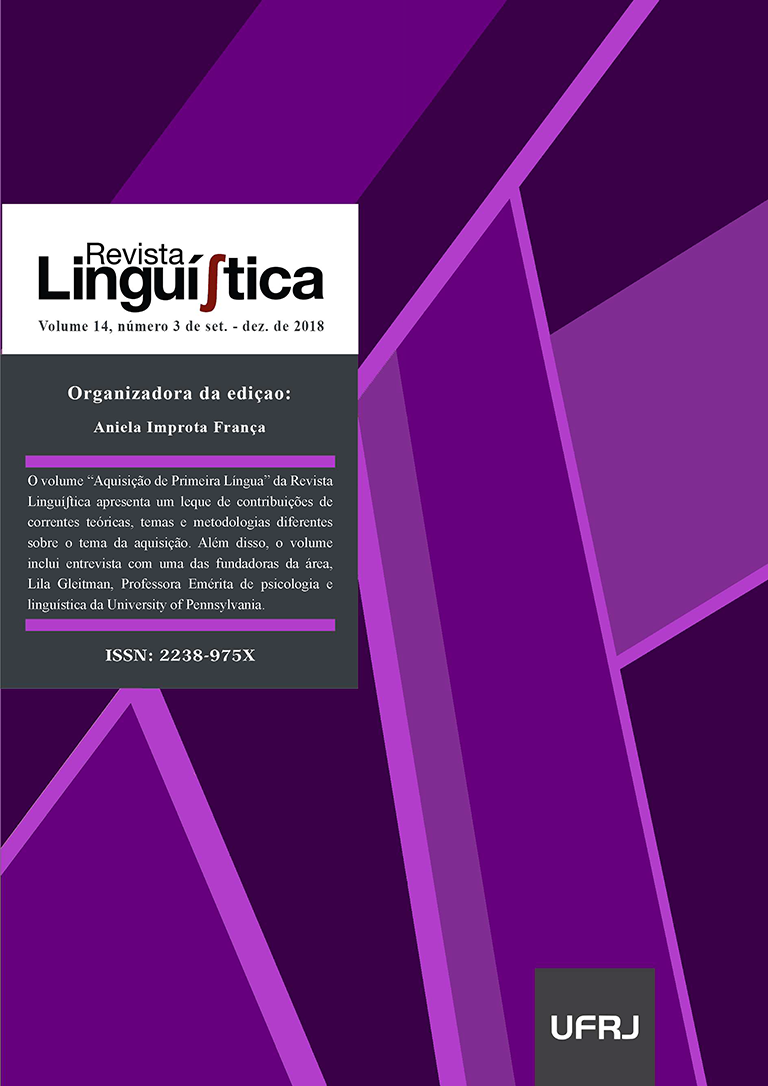Pay attention to Executive Functions in language acquisition research: the engagement of child participants depends on them
DOI:
https://doi.org/10.31513/linguistica.2018.v14n3a25509Keywords:
executive functions, children as experiment participants, role-playing, language acquisition.Abstract
In this squib, we present a brief summary on Executive Functions (FEs), a group of cognitive abilities that allow us to identify problems, establish goals and action plans towards solutions. We focused on their development in children and on how the lack of such functions might interfere in children’s engagement in linguistic experiments. Since, from the point of view of the child-participant, experiments do not have immediate purpose and do not favor their immediate well-being, children often lose interest and fail to engage in experimental tasks. Experiments might turn into boring activities to children whose FEs have not yet developed. As an alternative to mitigate these problems, we proposed that experimenters should consider the quality and ecological validity of experiments, thus avoiding large data loss, through playfulness and repetition of tasks especially concerning online experiments. To illustrate our suggestion, we report two alternative experiments that involve roleplaying tasks, which successfully engaged participants, incurring in minimal data loss.
---
DOI: http://dx.doi.org/10.31513/linguistica.2018.v14n3a25509
Downloads
Published
Issue
Section
License
Authors who publish in the Revista Linguí∫tica agree with the following terms:
The authors maintain their rights, ceding to the journal the right to first publication of the article, simultaneously submitted to a Creative Commons license permitting the sharing with third-parties of published content as long as it mentions the author and its first publication in the Revista Linguí∫tica.
Authors may enter into additional agreements for the non-exclusive distribution of their published work (for example, posting in online institutional or non-profit repositories, or book chapters) so long as they acknowledge its initial publication in the Revista Linguí∫tica.

The journal Revista Linguí∫tica is published by the Post-Graduate program in Linguistics of UFRJ and employs a Creative Commons - Attribution-NonCommercial 4.0 International (CC-BY-NC).









